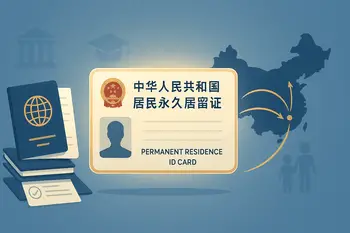
Guanxi (关系) is a cornerstone of Chinese culture, deeply influencing social and business interactions.
For anyone looking to thrive in China—whether personally or professionally—understanding and effectively leveraging Guanxi is essential.
This guide explores the essence of Guanxi, its significance, and practical strategies for building and maintaining these crucial relationships.
What is Guanxi?
Guanxi, often translated as “connections” or “relationships,” is far more than just networking.
It is a complex system of mutual obligations, trust, and reciprocity that permeates many aspects of Chinese life.
Rooted in Confucian values, Guanxi emphasizes loyalty, respect, and the importance of maintaining harmonious relationships.
Key Categories of Guanxi:
- Familial Guanxi: Relationships within the family, considered the most enduring and significant. For example, family members often prioritize helping each other in times of need, reflecting Confucian ideals of filial piety (孝).
- Social Guanxi: Connections with friends, colleagues, and acquaintances, which provide social and professional support. For instance, a friend might recommend you for a job or help you navigate bureaucratic processes.
- Business Guanxi: Professional relationships that are vital for career growth and business success. For example, a supplier might offer better terms to a trusted partner with whom they have a strong Guanxi.
Why is Guanxi Important?
Guanxi plays a pivotal role in Chinese society for several reasons:
- Trust and Credibility: In a culture where trust is paramount, Guanxi helps establish credibility. For example, a business deal is more likely to succeed if facilitated by a trusted intermediary.
- Access to Resources: Guanxi can open doors to opportunities, information, and resources that might otherwise be inaccessible. For instance, a strong connection with a local official might expedite permits or approvals.
- Conflict Resolution: Guanxi often bypasses formal legal channels, enabling smoother resolution of disputes. For example, a mutual acquaintance might mediate a disagreement between two parties.
- Social Harmony: Maintaining harmonious relationships is a core value in Chinese culture, and Guanxi fosters mutual respect and understanding.
How to Build Guanxi
Building Guanxi requires effort, patience, and a genuine interest in fostering relationships.
Here are some effective strategies:
1. Show Genuine Interest
- Cultural Understanding: Learn about Chinese customs, traditions, and social norms. For example, understanding the importance of face (面子) and avoiding actions that might cause someone to lose face is crucial. Learn more about face in Chinese culture.
- Language Skills: Learning Mandarin or even a few key phrases can significantly enhance communication and show respect for the local culture. Apps like Duolingo or HelloChinese are great starting points.
2. Reciprocity and Mutual Benefit
- Give and Take: Guanxi is built on reciprocity. For example, offering help or a small gift without expecting immediate returns lays the groundwork for long-term relationships. Gifts should be thoughtful and culturally appropriate—avoid items like clocks, which symbolize bad luck.
- Seek Mutual Benefit: Create win-win situations. For instance, if you’re a business owner, consider how your partnership can benefit both parties equally.
3. Patience and Consistency
- Invest Time: Building meaningful Guanxi takes time. For example, attending regular social gatherings or staying in touch over the years strengthens bonds.
- Be Reliable: Always follow through on commitments. For instance, if you promise to help someone, ensure you deliver.
4. Utilize Social Gatherings
- Attend Events: Participate in social events, such as dinners or festivals, to build and strengthen Guanxi. For example, attending a colleague’s wedding shows respect and interest in their life.
- Host Gatherings: Inviting others to informal dinners or celebrations can nurture relationships and demonstrate hospitality.
5. Leverage Introductions
- Third-Party Introductions: Being introduced by a mutual acquaintance enhances credibility. For example, a trusted friend introducing you to a potential business partner can fast-track trust.
- Expand Your Network: Actively seek introductions and be open to meeting new people. Platforms like WeChat are invaluable for staying connected in China.
Challenges for Foreigners
Foreigners often face unique challenges when navigating Guanxi:
- Cultural Misunderstandings: Misinterpreting social cues or failing to reciprocate appropriately can harm relationships. For example, declining an invitation to dinner without a valid reason might be seen as disrespectful.
- Language Barriers: Limited Mandarin skills can hinder communication and relationship-building.
- Trust as an Outsider: Building trust as a foreigner takes time and effort, as locals may initially view you as an outsider.
To overcome these challenges, invest in cultural learning, seek guidance from locals, and demonstrate genuine interest in building long-term relationships.
Maintaining Guanxi
Building Guanxi is just the beginning; maintaining it requires ongoing effort.
Here are some tips:
1. Regular Communication
Stay in touch through calls, messages, or social media platforms like WeChat. For example, sending a holiday greeting during Chinese New Year shows thoughtfulness.
2. Express Gratitude
Always acknowledge help or favors received. For instance, a handwritten thank-you note or a small gift can go a long way.
3. Celebrate Important Occasions
Recognize milestones like birthdays, promotions, or weddings. For example, attending a colleague’s child’s birthday party demonstrates care and respect.
4. Provide Support in Difficult Times
Be proactive in offering help during challenging times. For example, if a friend is facing a personal loss, offering emotional or practical support strengthens the bond.
Ethical Considerations
While Guanxi is a valuable tool, it can sometimes blur the lines between ethical and unethical behavior.
For example, excessive reliance on Guanxi in business can lead to favoritism or even corruption.
It’s important to strike a balance and ensure that your actions align with both cultural norms and ethical standards.
Read more about ethical challenges in Guanxi.
Real-Life Example: Guanxi in Action
A foreign entrepreneur in Shanghai wanted to expand their business but faced challenges navigating local regulations.
Through a mutual acquaintance, they were introduced to a local official who provided guidance and expedited the necessary permits.
In return, the entrepreneur invited the official to a company event, strengthening their relationship.
This example highlights the reciprocal nature of Guanxi and its role in achieving mutual goals.
Conclusion
Understanding and effectively leveraging Guanxi is crucial for personal and professional success in China.
By showing genuine interest, practicing reciprocity, and investing time and effort, you can build meaningful connections that benefit all aspects of your life.
For further reading, check out these resources:
By appreciating the cultural significance of Guanxi and applying the strategies outlined in this guide, you can navigate Chinese society with confidence and build lasting relationships.


